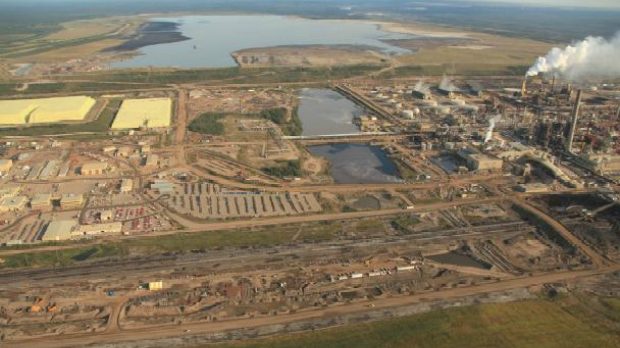-
Chamber of Commerce, Real Estate Board & UDI provide 69 recommendations
-
Estimated $4 billion in potential revenues lost every year in income taxes paid to other provinces
-
Poor land management has led to inflated housing prices in McMurray
The Fort McMurray Chamber of Commerce, the Fort McMurray Real Estate Board and the Urban Development Institute – Wood Buffalo today released a report that examines the socio-economic impacts of the rapid oilsands expansion felt in Wood Buffalo over the last decade.
In its report the business organizations make 69 total recommendations to address issues that the group says reduce profits, government revenues and municipal sustainability.
“Albertans know how important the oilsands are to our economy,” said Nick Sanders, President of the Fort McMurray Chamber of Commerce in a press release. “Even during these uncertain times, oil sands royalties alone account for 20 to 30 per cent of government revenues. But oilsands development is not an abstract economic pursuit that occurs only in Alberta’s hinterlands. There are 80,000 residents of Fort McMurray for whom that development is on their doorstep and on whom orderly, responsible development relies.”
Alberta’s prosperity hangs in the balance
The group notes that if the province of Alberta is to continue to prosper off the development of the oilsands in an increasingly competitive global market it must do make sure of three things.
First that the cost of oilsands production is globally competitive, second that the work force remains stable as work transitions from construction to operations in 2017, and third that urban growth within the RMWB be responsive and responsible and contributes to a quality-of-life.
“The new provincial government has launched important macro-economic investigations that will influence provincial policy with respect to responsible oilsands development,” states the group in a news release. “But it also must address socio-economic impacts within the Wood Buffalo region that also constrain revenues.”
Lack of policy direction
No policy direction, focus and attention is to blame for a number of negative impacts on the Wood Buffalo region and the oilsands.
“Because the Province does not have a coordinated approach to oilsands development […] the government is risking its own considerable investment of our tax dollars and the ongoing prosperity of all Albertans,” said Sanders. “The newly elected New Democratic government has an opportunity not seen in a decade, when oilsands production has nearly doubled to ensure that it gets its full responsibilities with respect to oilsands development right.”
A lack of transportation infrastructure in the region according to the report is one of those major issues; it notes there’s just one road in and out of Fort McMurray, a city of 80,000 people whereas a much smaller community in Slave Lake had several escape routes during the wildfires of 2011.
Rough calculations by the group suggest that $4 billion in potential revenues are lost every year in income taxes paid in other provinces.
Poor planning is also to blame for incredibly inflated housing and land costs in McMurray, the most recent land release saw the province sell raw crown land for development for $110,000 an acre, 14 times the price it accepted in Whitecourt, and 323 times the price in High Level. Because of that, single-family housing prices in Fort McMurray are the second highest in Canada.
Notley’s thoughts
The Premier held a press conference this afternoon after a first sitting in the legislature. Rachel Notley was asked about the report released today but said she was only briefed on the subject and did not have time to read through it.
“There’s no question that the Wood Buffalo region whether with the price of oil low or high will be an important economic centre for the province of Alberta for years to come,” said Notley during her press conference. “It would certainly be nice if government could get ahead of the many challenges they face in that community as opposed to scrambling to catch up. So I will be asking my Minister of Municipal Affairs and my Minister of Economic Development to work together on reviewing that report and to determine if there’s more that we can do to work with the leadership and the community leaders in Wood Buffalo, to support that community’s massive obligation to keep up with the tremendous pressure that all Albertans ultimately put on that region.”
Radke report
The group wants to see a revitalization of the Oil Sands Sustainable Development Secretariat, which was created in 2006 under former Premier Ed Stelmach. The Secretariat was commissioned out of “the Radke report” technically known as “Investing in Our Future”. The report led to $3 billion in special purpose funding for Wood Buffalo, its 70 recommendations essentially expired in 2011 and haven’t been updated since.
“Responsible Actions” a document developed by the Secretariat, which is a 20-year strategic plan for oilsands development in the province hasn’t been updated since 2011. While the group notes the Secretariat has basically become obsolete while being buried within Alberta Energy.
The report notes that government disengagement puts $3 billion in capital investment, 20-30 per cent of provincial revenues and seven per cent of the national GDP in jeopardy.
You can read the full 140 page report here.





